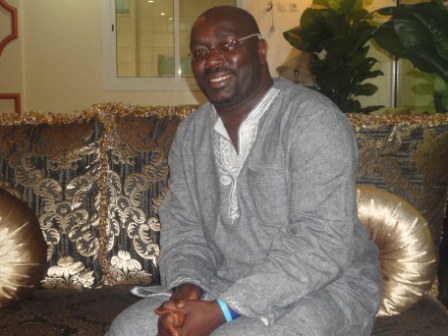African Child’s Day: A commemoration or a sober reflection?
The history of African Child’s Day could be traced as far back as 16 June 1976 when thousands of black students protested against having to learn the Afrikaans language in school.  Afrikaans is a West Germanic language, mainly spoken in South Africa and Namibia. It is a referred to as the daughter language of the Dutch, originating in its seventeenth century dialects, and was historically referred to as Cape Dutch. Although Afrikaans borrowed from languages such as Malay, Portuguese, the Bantu languages, or the Khoisan languages, an estimated 90 to 95 percent of Afrikaans vocabulary is ultimately of Dutch origin. With about 6 million native speakers in South Africa, or 13.3 percent of the population, it is the third most spoken mother tongue in the country. It has the widest geographical and racial distribution of all official languages, and is widely spoken and understood as a second or third language. It is the majority language of the western half of South Africa, the provinces of the Northern Cape and Western Cape, and the primary language of the coloured and white communities.
The protest against learning the Afrikaans language was intended to be peaceful and had been carefully planned by the Soweto Students Representative Councils (SSRC) action Committee with support from the wider Black Consciousness Movement. The crowd of about ten thousand students made a peaceful protest march waving placards with slogans such as ‘Down with Afrikaans’ and ‘Viva Azanian.’ The name Azania was used as an alternative name for South Africa among revolutionary Black African nationalists, appearing in the names of groups such as the Azanian People’s Organisation, the Pan Africanist Congress of Azania and the Socialist Party of Azania.
During the riot on 16 June, 23 people including two white people died in Soweto, although account of how many children died varied from two hundred to six hundred. Because of this massacre of black children in Soweto, 16 June was supposed to be seen as a day of sober reflection across Africa. On the contrary, the African Child’s Day in Sierra Leone is looked upon as a day of  mere celebration. Children in this country dress up in different attire parading the streets of all major towns in the name of celebrating the African Child’s Day. The essence of the African Child’s Day appears to have lost its meaning here.
This brings me to the implementation of the Convention of the Rights of the Child in Sierra Leone. According to this convention which was adopted by the UN General Assembly on 20 November 1989 and of which Sierra Leone is a signatory, ‘state parties shall take all appropriate measures that the child is protected against all forms of discrimination or punishment on the basis of the status, activities, express opinions or beliefs of the child parents, legal guardians or family members.’ The question that comes to mind is: Are all children being treated equally in Sierra Leone?
Despite efforts by local and international stakeholders, our children are still lagging behind those in the sub-region. Child labour appears to be widespread with school going aged children being used as domestic servants when they should be in school. While those from ‘caring’ homes are in school, child labourers could be seeing selling cold water or collecting garbage along the principal streets of all major towns in the country, while a dozen others accompany their blind or poor parents to go around begging.
As a signatory to the aforementioned convention, the government through the Ministry of Social Welfare, Gender and Children Affairs must step up its efforts to protect the future of these vulnerable children.  Speaking at a press conference organised by the Social Welfare, Gender and Children Affairs Ministry ahead of the African Child’s Day last year, Geert Cappelaere, Country Representative of the UN Children’s agency UNICEF noted that child survival should be one of the major priorities of all non-governmental organizations operating in the country to help foster the standard of living for all children in Sierra Leone. According to him, the violation of the rights of children, particularly the girl child, has led to so many teenage pregnancies in the country. He insisted that the Ministry of Social Welfare, Gender and Children Affairs must help to fight such occurrences.
A year later, one may be tempted to ask what mechanisms have been put in place to address this anomaly in our social system. Negligible, if any. Â When our children continue to suffer abuses by the tick of the clock, the ministry in charge should be seen to be proactive in protecting and defending their rights in Sierra Leone. One does not need to conduct a research to ascertain the plight of vulnerable children in this country. It is all over the place.
Hindowa E. Saidu, Freetown
The writer is the Director of Foundation for Democratic Initiatives and Development, a Human Rights organization in Sierra Leone.
Stay with Sierra Express Media, for your trusted place in news!
© 2010, https:. All rights reserved.




